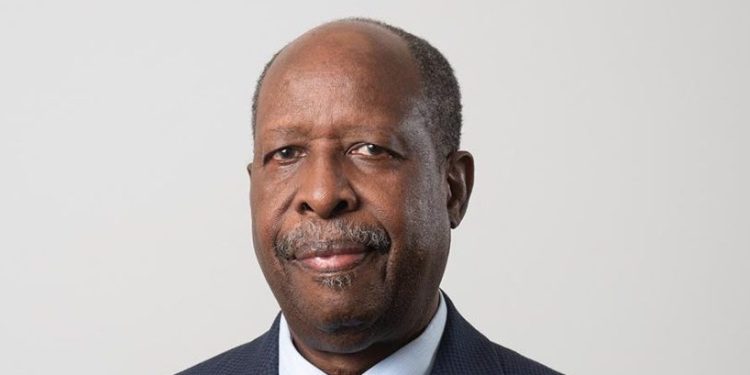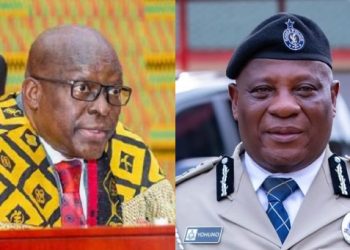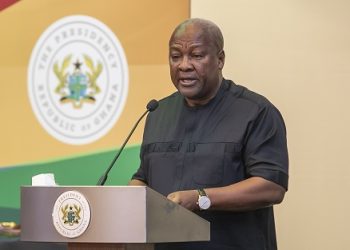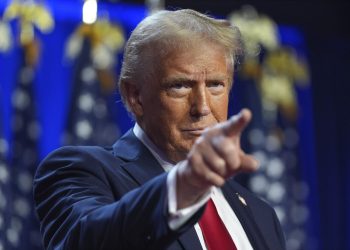Defence spending to resolve the Sahelian crisis is rising in both financial and human cost, as spending on central Sahel is projected to be about $3.2 billion by the end of 2025, in addition to an estimated one million people being displaced in the community, resulting in the closure of 14,000 schools, as well as the recruitment of more than 1,300 children by armed groups to fight with them, the Special Representative of the Secretary General of the UN for West Africa and the Sahel, Leonardo Santos Simão has said.
In a speech at the second edition of the LPSF, Simão said, the situation “reflects the urgency of the threat, but it also reminds us of the need to balance security with investment in health, education and climate resilience,” adding that, “every child returning to school, every community rebuilt is a victory for peace.”
The LPSF is a platform for African leaders, policymakers, and scholars to engage in strategies for sustaining peace, enhancing regional cooperation, and responding to evolving security challenges in Africa. The first one was held two years ago.
Simão said gold and other mineral resources in many parts of West Africa are now targets for violent groups, criminal networks, and global actors. In addition, climate change has intensified farmer-herd clashes, displacement, and poverty.
He said these problems present a chance for Africa to be innovative through climate-smart agriculture, water diplomacy and green infrastructure, adding that though regional mechanisms such as the multinational joint task force and the Accra Initiative have faced difficulties, “their existence reflects our commitment to regional solutions.”
He said the meeting in Lome provides a renewed opportunity to reflect, coordinate and build momentum for collective action strategically, as well as operationally, because to reverse these trends, “we must act differently. Mental responses alone are not enough.”
Simão said, poverty and lack of hope were the driving forces in a world of geopolitical competition, which has amplified further the challenges that Africa in general, and the Sahel in particular are faced with.
He said when the recommendations of the Pact for the Future which was adopted by the UN General Assembly in September 2024, are translated into deeds, the fight against poverty in Africa would be successful.
The four main areas of the pact are, sustainable development, peace and security, science, technology, digital cooperation, youth, and future generations as well as global governance.
The pact was complemented by the outcomes of the Fourth International Conference on Financing for Development, also called the Seville Commitment, which took place in July 2024 in Spain..
“Once adopted, we are challenged to develop a common and collective resolve to implement these commitments over the necessary time until we obtain the expected results. We have to avoid the trap of adopting new commitments about the same themes over and over again without exhausting the implementation of the previously adopted,” Simão added.
He said , “sovereignty is measured by what we build, not what we declare or claim,” stating that, “borrowing models fail repeatedly in Africa,” and therefore “Africa must act on its own foundations.”
Simão said for this reason, LPSF has become the centre where Africa sets its peace and security agenda, adding that, “this forum exists because of a vision born here in Togo, where President Faure Gnassingbe understood early what others only later recognized.”
Former Nigerian President, Olusegun Obasanjo said the global situation is not just changing, but has become “fractured, unstable, and unpredictable, and devoid of any security or solidarity,” adding that, “impunity, and arbitrariness reign and rule the world. The laws, rules and regulations of international relations and interaction have been brushed aside wantonly. And we in Africa, whichever way, have the wrong end of the stick.”
“Even when the situation was not as bad as it is, the laws, rules and regulations of international relations and interaction were mostly in place before our independence. They were not made for us, nor by others, and not to serve our purpose. However, we continue to live with it and in it,” President Obasanjo said.
“Now that these are wantonly disregarded, we are left high and dry. With our persistent and undiminished levels of conflicts, insecurity, instability, unpredictability, corruption, election, malpractice, and underdevelopment,” he added.
President Obasanjo said, after over 60 years of independence, it is not for Africa to continue to stay good by blaming colonial heritage or legacy, adding that, “in most cases, we are paying attention to and treating symptoms rather than diseases.”
He listed Africa’s diseases as bad governance, mismanaging capacity, as well as not understanding development, believing and living on received ideas and other people’s narratives about the continent.
“We cannot continue to outsource our life and livelihood, our development, including our food, our protection, our prosperity,” which has been complicated by the fact that, “we are plagued with greed, selfishness, corruption, and lack of character,” President Obasanjo added.
The way forward for Africa he said, is a “moral rearmament and leadership that will lead to good governance, inclusive society, equity, fairness, justice and judicious management of diversity,” adding that, with “strong leadership at all levels and in all walks of life, not only at the political level, but Africa will also be able to stand together in good neighbourliness, share prosperity and common security.”












